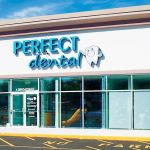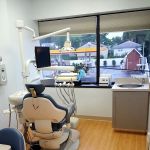How to Keep Your Gums Healthy in Your 40s and Beyond: A Personal Guide
As I hit my 40s, I began to realize that taking care of my gums was just as important as taking care of my teeth. I had always thought that gum health was something for older adults to worry about, but in my 40s, I started noticing subtle signs that things were changing. My gums seemed a little more sensitive than before, and my dentist mentioned that I needed to pay closer attention to my gum health. That’s when I started learning more about maintaining healthy gums as I age. In this guide, I’ll share what I’ve learned and how you can maintain strong, healthy gums in your 40s and beyond.
1. Understand the Role of Healthy Gums in Your Overall Health
When I first started paying more attention to my gums, I didn’t realize how interconnected they were with my overall health. Healthy gums play a crucial role in keeping your teeth anchored and ensuring your mouth stays free of harmful bacteria. In fact, research shows that gum disease can contribute to other serious health issues, such as heart disease, diabetes, and even stroke. Realizing this motivated me to take better care of my gums to protect not just my teeth, but my overall well-being.
- Preventing Gum Disease: Gum disease, if left untreated, can lead to tooth loss. In my 40s, I made it a priority to understand how gum disease develops and how to prevent it.
- Link to Systemic Health: It turns out that the health of your gums can influence your risk for other diseases. Healthy gums are an important part of maintaining overall health.
2. Practice Proper Brushing Techniques
When I was younger, I didn’t give much thought to the technique I used while brushing my teeth. But as I entered my 40s, I learned that how you brush matters as much as how often you brush. I realized that proper brushing could be one of the most effective ways to prevent gum disease.
- Use a Soft-Bristled Toothbrush: I found that using a toothbrush with soft bristles helps me avoid damaging my gums. Hard bristles can wear down gum tissue and lead to receding gums.
- Brush Gently: I now make sure to brush my teeth gently with circular motions. Brushing too hard can harm my gums, so I focus on being gentle yet thorough.
- Brush for Two Minutes: I use a timer to ensure I brush for a full two minutes. This helps remove plaque buildup that can lead to gum disease.
3. Floss Every Day
Flossing was never my favorite activity, but I’ve learned that it’s an essential part of maintaining healthy gums, especially as we age. In my 40s, I started noticing that my gums would bleed slightly when I flossed, which was a sign that I wasn’t cleaning effectively between my teeth. Now, I floss every day to prevent plaque buildup and ensure my gums stay healthy.
- Proper Flossing Technique: I make sure to use a gentle sawing motion to get the floss between my teeth, making sure not to snap it, which can damage the gums.
- Use Dental Tools: If regular floss is difficult for you, consider using floss picks or water flossers. I find water flossers particularly helpful in cleaning areas that are harder to reach.
4. Visit Your Dentist Regularly for Checkups
One of the most important things I did to maintain healthy gums in my 40s was committing to regular dental checkups. My dentist plays a key role in keeping my gums in check, especially since gum disease can develop slowly and often without noticeable symptoms. Regular visits help identify any early signs of gum issues, allowing me to address them before they become more serious.
- Professional Cleanings: Even though I brush and floss daily, professional cleanings are necessary to remove plaque and tartar buildup that can’t be removed at home.
- Early Detection: My dentist checks for signs of gum disease, such as gum recession, inflammation, and pockets around my teeth, ensuring that if an issue arises, it can be addressed early.
5. Maintain a Balanced Diet for Gum Health
As I got older, I realized that what I ate had a huge impact on my gum health. I started paying closer attention to the foods I was consuming to ensure I was providing my gums with the nutrients they needed to stay healthy. A diet rich in vitamins and minerals supports the immune system and helps fight gum disease.
- Eat Foods Rich in Vitamin C: Vitamin C is essential for healthy gums. I started eating more citrus fruits, strawberries, and bell peppers to help prevent gum bleeding and inflammation.
- Consume Calcium for Bone Health: Calcium is important for strong teeth and bones. I added more dairy, leafy greens, and fortified foods to my diet to support my oral health.
- Avoid Sugary Foods and Drinks: I’ve learned that sugar can fuel harmful bacteria in the mouth, leading to gum disease and tooth decay. Reducing my sugar intake has been crucial for maintaining my gum health.
6. Avoid Smoking and Tobacco Products
Another important change I made was quitting smoking. Smoking is a major risk factor for gum disease, and I realized that as I entered my 40s, I couldn’t afford to ignore its impact on my gums any longer. Tobacco use weakens the immune system, making it harder for the body to fight off infections, including those in the gums.
- Quitting Smoking: I’ve found that quitting smoking has not only improved my gum health but also my overall well-being. It’s one of the best decisions I made for my oral and general health.
- Reduce Alcohol Consumption: Excessive alcohol can also contribute to gum problems. I’ve cut back on my alcohol intake, especially sugary drinks, to improve my gum health.
7. Stay Hydrated
Keeping my mouth hydrated became even more important in my 40s, as I began noticing dry mouth more often. Dehydration can lead to a dry mouth, which increases the risk of gum disease by reducing saliva production. Saliva helps to neutralize acids and wash away food particles and bacteria that can cause plaque buildup.
- Drink Plenty of Water: I make sure to drink water throughout the day to keep my mouth moist and to help maintain healthy gums.
- Consider Saliva Substitutes: If I experience dry mouth, I use saliva substitutes like sprays or mouthwashes designed to help keep the mouth moist.
8. Manage Stress for Better Oral Health
As I entered my 40s, I realized that stress was having a negative impact on my oral health, including my gums. Stress can contribute to gum disease by weakening the immune system and increasing inflammation. I learned that managing stress through exercise, meditation, and relaxation techniques can have a positive effect on my overall health, including my gum health.
- Exercise: Regular physical activity helps reduce stress and improve blood circulation, which is beneficial for gum health.
- Meditation and Relaxation: I found that incorporating mindfulness practices into my routine helps me manage stress, keeping my gums and overall health in better condition.
Maintaining healthy gums in your 40s and beyond requires attention and commitment, but the rewards are worth it. By adopting the right habits, such as brushing and flossing properly, eating a balanced diet, and visiting your dentist regularly, you can protect your gums and ensure a lifetime of healthy smiles. If you’re looking for more advice or dental care options, visit Dentistry Toothtruth for personalized recommendations and expert guidance on keeping your gums healthy.







 Community Health Center of Snohomish County - Everett-North Clinic4.0 (960 review)
Community Health Center of Snohomish County - Everett-North Clinic4.0 (960 review) Red and Ritchey Orthodontics - Joliet5.0 (418 review)
Red and Ritchey Orthodontics - Joliet5.0 (418 review) Rockport Family Dental4.0 (191 review)
Rockport Family Dental4.0 (191 review) Perfect Dental - Methuen4.0 (678 review)
Perfect Dental - Methuen4.0 (678 review) International Dental of Joliet4.0 (93 review)
International Dental of Joliet4.0 (93 review) Le Pera Daniel DMD4.0 (72 review)
Le Pera Daniel DMD4.0 (72 review) The Importance of Oral Health Education During Pregnancy for a Healthy Pregnancy
The Importance of Oral Health Education During Pregnancy for a Healthy Pregnancy Best Tips for Brushing Your Teeth Properly for Healthy Gums: Essential Techniques for Oral Health
Best Tips for Brushing Your Teeth Properly for Healthy Gums: Essential Techniques for Oral Health Why Skipping Dental Checkups Can Lead to Bigger Oral Health Problems
Why Skipping Dental Checkups Can Lead to Bigger Oral Health Problems Advantages of Porcelain Dental Restorations
Advantages of Porcelain Dental Restorations How Can Diabetes Cause Tooth and Gum Problems? Preventing and Managing Oral Health Issues
How Can Diabetes Cause Tooth and Gum Problems? Preventing and Managing Oral Health Issues Healthy Habits for Promoting Good Oral Health and Hygiene: Tips for a Healthy Smile
Healthy Habits for Promoting Good Oral Health and Hygiene: Tips for a Healthy Smile